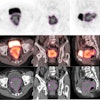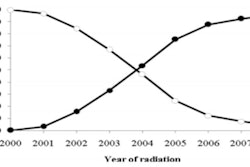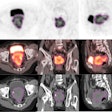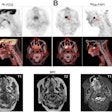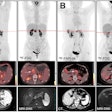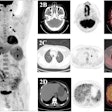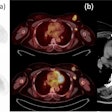Two radiation oncologists who run the radiation therapy departments at one hospital and a large multispecialty clinic in Pensacola have been hit with federal charges that they billed Medicare and other government healthcare agencies for procedures without providing supervision as required by federal law. The hospital and clinic have also been named as defendants in the case.
Dr. Gerald Lowrey, Dr. Rod Krentel, and four co-defendants are accused of billing federal healthcare entities for radiation therapy services that were not ordered and were not properly supervised in accordance with Medicare and Medicaid requirements, as well as of double billing for some of these procedures. The federal lawsuit claims that the defendants received at least $3.5 million in payments they weren't entitled to between December 2007 and October 2011.
The complaint also accuses the defendants of performing medically unnecessary procedures, manipulating records to claim the physicians were adequately supervising staff, and creating false records to support claims for reimbursement from Medicare and other federal agencies. The lawsuit was filed in March 2012 in the U.S. District Court for the Northern District of Florida and names as defendants the radiation oncologists, their radiation oncology groups, and the Pensacola hospitals to which they provide services.
The defendants include Sacred Heart Health System, which operates the largest hospital and healthcare enterprise in greater Pensacola, and West Florida Medical Center Clinic, the largest multispecialty outpatient clinic in Pensacola. These organizations owned and operated the radiation therapy centers where Lowrey and Krentel worked, Gulf Region Radiation Oncology Center in Pensacola and Emerald Coast Radiation Oncology Center in Miramar Beach, before selling these facilities to Gulf Region Radiation Oncology MSO, a private radiation oncology practice.
The members of the board of directors of Gulf Region Radiation Oncology MSO, which is also named as a co-defendant in the lawsuit, are senior-level executives who work for either Sacred Heart Health System or West Florida Medical Center Clinic.
Whistleblower complaint
The lawsuit is the outcome of a more than a yearlong federal investigation that was initiated after a civil whistleblower complaint was filed on September 13, 2010, by Richard S. Koch, a former employee of Gulf Region Radiation Oncology MSO.
In December 2008, the practice had recently acquired two radiation oncology treatment centers, Emerald Coast Radiation Oncology Center, which served West Florida Medical Center Clinic, and Gulf Region Radiation Oncology Center, which served Sacred Heart Health System. Gulf Region Radiation Oncology MSO was merging the practices into one entity, Gulf Region Radiation Oncology Centers, and Koch was hired in January 2009 to facilitate the merger, according to the civil complaint.
Lowrey and Krentel were contracted by each hospital, as well as by Gulf Region Radiation Oncology MSO, to provide their services to the offices of Gulf Region Radiation Oncology Centers and Emerald Coast Radiation Oncology Center, according to the federal complaint. Court documents claim that the radiation oncologists were "the primary ones performing these services" at these facilities.
The complaint filed by Koch charged that the two radiation oncologists ran three geographically separate radiation oncology centers for years, all operating with nearly identical hours. Koch's complaint also alleges that when one of the radiation oncologists was on vacation or otherwise not at work, the sole available radiation oncologist supervised all three facilities simultaneously. The U.S. Centers for Medicare and Medicaid Services requires that a radiation oncologist must be physically present whenever a Medicare, Medicaid, or Tricare patient receives any type of radiation oncology treatment.
Each of the hospitals submitted claims to private health insurance companies, Medicare, Medicaid, and Tricare (for military dependents and retired military personnel). The hospitals paid Gulf Region Radiation Oncology MSO a percentage of payments; the radiation oncologists also received a percentage of payments for their services.
Koch's involvement
Koch claims that within 10 months of his hiring, he discovered what he claimed was fraudulent billing of services to Medicare and the Florida Medicaid program, and in November 2009, he met with Lowrey and Krentel to discuss what he had uncovered. In that meeting, they advised him that they had no intention of changing their billing practices, according to the civil complaint.
Other executives with Gulf Region Radiation Oncology MSO also declined to pursue Koch's concerns over billing and coding, the complaint states, one of whom was Terri Smith, who also served as vice president of cancer care at Sacred Heart Cancer Center. They also turned down Koch's recommendation to hire an independent billing and coding consultant, who would provide advice and also instruct Lowrey and Krentel on proper billing methods.
In January 2010, Koch was notified that he would be terminated by the radiation oncology practice in what the civil complaint claims was a retaliatory measure. He left the practice in March 2010.
Koch's allegations
Koch's civil complaint includes a number of charges:
-
Failure to be physically present at a radiation oncology facility as radiotherapy treatments were being performed
Direct supervision was not consistently provided at the radiation oncology centers as required under federal law, the complaint states. Thirty to 50 patients would be treated daily at each center.
-
Lack of written orders for all types of treatments to be performed and lack of stating medical necessity for treatments
The complaint alleges that for an unspecified number of patients, medical records were deficient and failed to include many types of signed orders.
-
Unbundling medical physics consultations from a bundled CPT code (770301) for the development of an intensity-modulated radiation therapy (IMRT) treatment plan, and also charging for unnecessary and/or unperformed medical physics consultations
Koch alleged that double billing and supplemental billing were routine, and had been so since 2002.
-
Charging for CT simulations, which either did not have a physician order, did not include any medical parameters, and/or were not reviewed by the physicians
Additionally, Koch claimed that when either radiation oncologist was present and provided a consultation to a patient, the radiation oncologist would tell the radiation therapy technician to perform the simulation without providing any instructions as to treatment area or patient positioning. If a radiation oncologist was not present, the radiologic technologists would proceed on their own, the complaint charges.
-
Unbundling and charging for separate and distinct treatment devices outside the IMRT plan, failure to order, and failure to show medical necessity
-
Charging for stereoscopic x-ray guidance for localization of target volume procedures for delivery of radiotherapy and failure to order them
Koch's complaint does not contest the clinical appropriateness of these procedures per se. Rather, it challenges the billing appropriateness because these exams allegedly were batch-reviewed at the end of the week after all treatment procedures had been performed, instead of prior to each daily procedure.
The Justice Department's complaint
The federal complaint filed by the U.S. Department of Justice cites 822 counts of false or fraudulent billing representing approximately 6,450 bundled claims, or more than 16,000 individual claims, for reimbursement from December 17, 2007, through October 13, 2011. According to the complaint, all named defendants submitted claims to and received payments from Medicare, Tricare, the U.S. Department of Veterans Affairs, and Florida Medicaid to which they were not entitled because the claims were false and fraudulent. The Department of Justice has requested a trial by jury in the case.
Specifically, the federal complaint alleges that Lowrey and Krentel were billing for services they had not properly prescribed, they were not directly supervising or performing themselves, that were not medically necessary, and/or that were already covered by another billing. The complaint also alleges that defendants and employees falsified details of daily operations, created medical records that contained false entries and false diagnoses, and created business records that contained false information.
The federal claim specifically states that the defendants treated or caused patients to be treated improperly "without either the direct supervision or personal involvement of radiation oncologists, knowing that radiation diagnosis, simulation, and treatment requires a radiation oncologist's direct supervision or personal involvement."
The office of the district attorney of the U.S. District Court for the Northern District of Florida acknowledged its awareness that the alleged lack of supervision may have seriously jeopardized patient safety. AuntMinnie.com was subsequently told by third-party sources that some patients have contacted medical malpractice attorneys.
Lowrey is listed as the radiation oncologist for the Medical Center Clinic's department of radiation oncology, and as the sole radiation oncologist in the directory of medical staff of the Sacred Heart Health System. Lowrey and Krentel both are listed as radiation oncologists in the West Florida Hospital physician directory, although upon calling, AuntMinnie.com was advised by a receptionist that Krentel was no longer there.
Sacred Heart Health System spokesperson Mike Burke would not confirm for AuntMinnie.com if Krentel had been terminated or had resigned, or what changes, if any, had been made for its cancer patients receiving radiation therapy.
Other defendants named in the case declined to respond to inquiries made by AuntMinnie.com.



